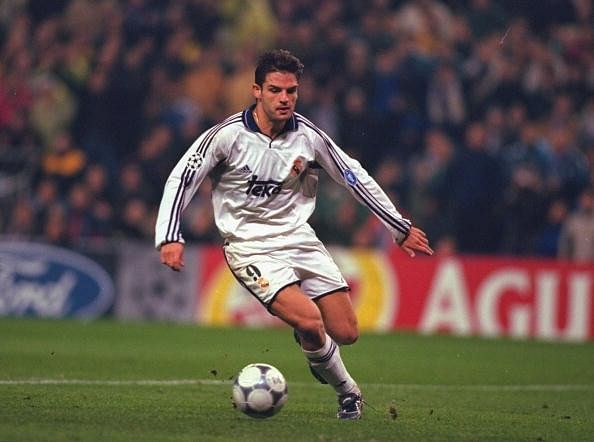
Fernando Morientes: one of the unfulfilled stories of football

It was the winter of 2004, English football’s landscape had just witnessed the arrival of the “The Special One” in the summer. Another manager from Europe had just taken over at Anfield and the turmoil was still in existence in the Reds camp.
A long-term injury sustained by Djibril Cisse had ruled him out for the rest of the season. Milan Baros the other striker was also having a fitful season marred with injuries. Out went Rafa Benitez striker shopping, and suddenly there was a rumour of a certain charismatic personality being available in the market. The name being “Fernando Morientes”.
Almost a decade has passed since this extraordinary personality walked out onto the hallowed pitch of Anfield, but there is still an air of romanticism whenever his name is mentioned.
Touted as one of the top strikers of his generation, his strike partnership with Raul was considered the most lethal in Europe. Considered one of the favourite sons of the Santiago Bernabeu, it was unfortunate that the administration at that point of time didn’t recognize the player’s hard work and effort.
A team player in a team of galacticos, he was given the same unceremonious treatment like that of Claude Makalele, both of whom were ushered out in order to buy bigger star names. While certain sections of the fans never warmed up to him, others loved him for his attitude and his care for the cause of the team.
Beginning his career at Albacete for whom he made his debut in the season of 93-94 which eventually earned him a move to Real Zaragoza. Some eye-catching performances over two seasons with them forced Real Madrid to purchase him, where his initial role was that of a backup striker to bigger names such as Davor Suker and Predrag Mijatovic. But such was his impact that he eventually ended up starting games rather than being a substitute.
“Moro”: The Outsider
Tracking his unceremonious and acrimonious exit from Real Madrid never fails to amaze me. For a player who outscored Raul at times and being an asset to the team, he could never make himself dear to the fans of Real Madrid. As illustrated by the nickname associated with him, he was called “Moro”, which literally translates as the Moor, the symbol of all things foreign in Spain.
The “aficion” who used to hail Guti and Raul, never took Morientes to heart, regardless of the consistency while providing stellar displays. His performances only merited a footnote when it came to Raul.
Although the fans' overwhelming support for Raul existed at unmatched levels, as a teammate Raul was a relentless supporter of Morientes. Such was the relationship, that Raul was one of the witnesses who were there to bless Morientes’s marriage.
The duo shared a close professional and personal relationship, and it showed in their game as well. The telepathic connection which they both exhibited, picking out each other and anticipating movements of each other was a sight to behold.
Very few strike partnerships were that clinical as Raul and Morientes. Further support from Raul can be seen in the incident of Raul wearing the jersey number no. 9 in the 2002 European Super Cup to show solidarity.
And tracing his exit, can be somewhat be attributed to the fact that while on loan with Monaco from Real Madrid, in the season of 2003-04, he audaciously scored over both legs against Madrid who were the quarter finalists themselves.
Eventually, Monaco as a team knocked out Real Madrid. The professionalism that he exhibited over that season, especially when faced with his employer endeared him to the Monaco fans, but from the Madridistas point of view, it was an act of a double agent. Looking back, it was more to do with the arrogance of the then Real Madrid President, Florentino Perez.
One of the highlights of his Madrid career was the goal he scored in the 1999-2000 season, in the all-Spanish Champions League Final against Valencia. From that to an exit which involved him being hawked around to other clubs without consent was the final insult that he could take.
His love for the white jersey was evident as he tried time and again to force into the side, but the rejection door was already slammed and ensuing purchases of Michael Owen in the summer of 2004, confirmed what was already known.